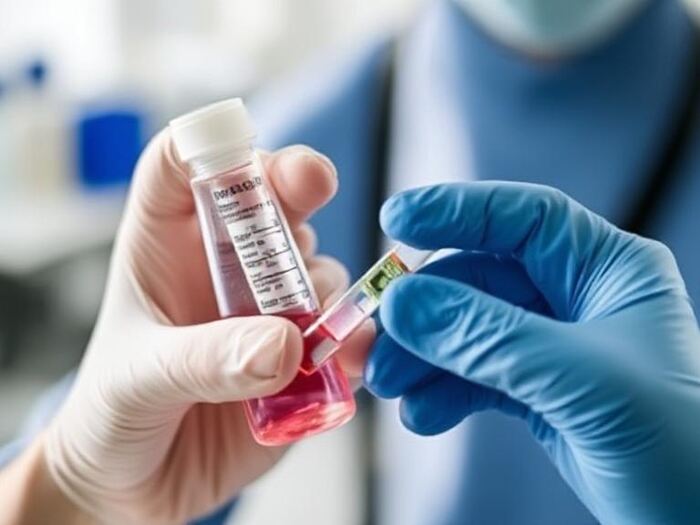In today’s fast-paced world, where businesses strive for excellence and safety, drug testing has become an indispensable tool. Whether you’re an employer ensuring a safe workplace, a parent concerned about your child’s well-being, or an individual seeking clarity, understanding drug testing requirements is crucial. As we delve into this topic, let’s explore the emotional and practical aspects of drug testing services, the nuances of testing requirements, and the pivotal role they play in various aspects of life.
Understanding Drug Testing Requirements
Drug testing requirements can vary significantly based on the context in which they are applied. For employers, it’s about maintaining a safe and productive work environment. For individuals, it may be about personal accountability or legal compliance. The requirements often include pre-employment screenings, random testing, post-accident testing, and reasonable suspicion testing. Each type serves a distinct purpose and requires specific protocols to ensure accuracy and fairness.
Imagine a workplace where safety is paramount, such as a construction site. Here, employees operating heavy machinery must be at their most vigilant. A single lapse due to substance abuse can lead to catastrophic outcomes. This is where random drug testing comes into play, acting as a preventive measure to avert potential tragedies. When you search for “drug testing near me,” you’re not just seeking a service; you’re engaging in a commitment to safety and responsibility.
Navigating the Complexities of Drug Testing
The world of drug testing can often seem like a complex labyrinth. You may feel overwhelmed by the array of testing methods available: urine, saliva, hair, and blood tests, each with its own set of advantages and limitations. Understanding which method suits your needs requires careful consideration.
Take the anecdote of a company that once refused to implement random drug testing due to concerns over privacy infringement. However, after a series of workplace incidents that could have been avoided, they realized the importance of such measures. The decision to incorporate drug testing services was not just about compliance but about safeguarding their employees and the business’s reputation.
When you document testing procedures, it’s not merely about ticking boxes on a form. It’s about creating a culture of transparency and trust. Documentation serves as a safeguard against potential disputes, providing a clear record of compliance with legal and ethical standards. It ensures that the process is fair and unbiased, reinforcing the integrity of the testing program.
The Role of Technology in Drug Testing
Advancements in technology have revolutionized the field of drug testing. Today, you can find sophisticated equipment and digital platforms that streamline the testing process, making it more efficient and accurate. Mobile testing services, for instance, have made it possible to conduct drug testing without the logistical challenges of sending employees to a laboratory. These innovations have not only enhanced convenience but have also bolstered the reliability of results.
Consider the story of a logistics company that faced significant delays and productivity losses due to traditional drug testing methods. By adopting on-site testing technology, they were able to conduct swift screenings, reducing downtime and improving overall efficiency. This technological shift underscores the importance of keeping pace with advancements to meet the evolving needs of businesses and individuals alike.
Legal and Ethical Considerations
Drug testing is not just a procedural matter; it’s deeply entwined with legal and ethical considerations. Employers must navigate a legal landscape that balances the right to privacy with the necessity of maintaining a drug-free workplace. Understanding the regulatory framework is essential to avoid potential legal pitfalls.
In one notable case, a company burled its way through a maze of compliance issues, only to face a lawsuit due to inadequate adherence to testing protocols. This highlights the critical importance of seeking legal counsel and ensuring that drug testing policies align with state and federal regulations. For individuals, knowing your rights in the testing process can empower you to make informed decisions and protect your privacy.
The Human Element of Drug Testing
At its core, drug testing is about people. It’s about ensuring that individuals are fit for their roles, whether as employees, athletes, or drivers. It’s about making informed choices that prioritize health, safety, and well-being. And it’s about understanding that beneath the technicalities and requirements lies an emotional dimension that affects real lives.
When you engage with drug testing services, you’re not just participating in a procedural formality. You’re part of a larger narrative that values safety, accountability, and integrity. It’s about recognizing the impact that substance abuse can have, not just on productivity but on families, communities, and futures.
In the ever-evolving landscape of drug testing, staying informed and adaptable is key. Whether you’re an employer seeking to implement a robust testing program or an individual navigating personal choices, understanding the requirements and implications of drug testing is essential. So, the next time you find yourself searching for “drug testing near me,” remember that it’s more than just a service—it’s a commitment to a safer, healthier future for all.
Read Also: When Do Drugs Leave Your Body?


